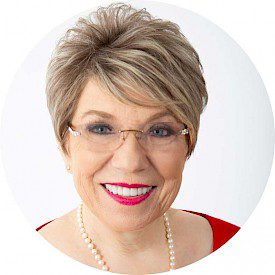Inclusive Leadership – Preparing Leaders to Foster Diversity and Inclusion in the Modern Workplace
Diversity and inclusion (D&I) are not merely buzzwords for a successful and innovative workplace. In today’s increasingly global and diverse work environment, organizations focusing on D&I are better positioned to attract top talent, foster creativity, and achieve sustainable Growth. However, fostering an inclusive environment requires more than just policies. It requires leaders committed to and skilled in promoting diversity and inclusion at every level of the organization. Here, HR professionals play a pivotal role.
HR professionals responsible for implementing D&I initiatives are also vital in preparing and equipping leaders to foster these values within their teams. By guiding leaders, providing the necessary tools, and ensuring they are aware of the latest trends and strategies, HR professionals help create a workplace where diversity and inclusion thrive. This process involves staying informed, addressing biases, and establishing inclusive policies, all essential for cultivating effective and inclusive leadership.
Staying Informed
For HR professionals, staying updated on the latest D&I trends and industry practices is crucial. The field of diversity and inclusion is constantly evolving, with new research, strategies, and challenges emerging regularly. By keeping themselves informed, HR professionals can effectively guide leaders in implementing D&I initiatives that are both current and impactful. One effective way to stay updated is by regularly following a reliable blog for HR professionals. These blogs often offer valuable insights into the latest developments in the field, share best practices, and provide practical advice that HR professionals can apply within their organizations.
Staying informed entails acquiring knowledge for Personal Development and equipping HR professionals with the information they need to educate and support leaders. When HR professionals are well-versed in the latest D&I strategies, they can confidently share this knowledge with leaders. This way, the organization’s approach to diversity and inclusion remains effective and adaptable to changing circumstances.
Providing Bias Training and Awareness Programs
Recognizing and addressing biases is a fundamental aspect of fostering an inclusive workplace. Whether conscious or unconscious, biases can significantly impact decision-making processes, hiring practices, and daily interactions within the organization. HR professionals have a critical role in helping leaders understand these biases and take steps to mitigate their effects. Implementing bias training and awareness programs is one of the most effective ways to achieve this. These programs can be tailored to the organization’s specific needs, helping leaders identify and address biases in a way that promotes a more inclusive mindset.
Bias training is not a one-time event but an ongoing process that requires commitment and reinforcement. HR professionals should ensure these programs are integrated into the organization’s broader D&I strategy, providing leaders with the tools to recognize and challenge biases as they arise. This way, HR professionals help create a workplace where all employees feel valued and respected, regardless of their background or identity.
Establishing Inclusive Policies and Practices
Developing and enforcing inclusive policies is another crucial responsibility of HR professionals in preparing leaders to foster diversity and inclusion. These policies are the foundation for creating a work environment where all employees have equal opportunities and diversity is genuinely valued.
Examples of such policies include inclusive hiring practices, which help keep recruitment processes free from bias. Equitable promotion processes are also critical, guaranteeing that all employees have a fair chance to advance within the organization. HR professionals must work closely with leaders to confirm that these policies are implemented and actively supported. Most importantly, HR professionals should regularly review and update these policies to reflect the changing needs of the workforce so they continue to promote inclusivity.
Promoting Diverse Leadership
Promoting diversity in leadership is essential for fostering an inclusive workplace. Diverse leadership teams bring various perspectives and experiences that can drive Innovation and improve decision-making. HR professionals play a crucial role in promoting diverse leadership within their organizations. It can be achieved through targeted recruitment efforts aimed at attracting candidates from underrepresented groups and by implementing mentorship programs that help develop the leadership skills of these individuals.
HR professionals should also focus on leadership development initiatives to identify and nurture diverse talent within the organization. Creating opportunities for individuals from different backgrounds to take on leadership roles helps HR professionals confirm that the organization’s leadership team reflects the diversity of its workforce. This approach enhances the organization’s ability to connect with a diverse customer base and reinforces its commitment to fostering an inclusive workplace where everyone can succeed.
Encouraging Open Communication and Feedback
Open communication is a cornerstone of an inclusive workplace. When employees feel comfortable sharing their thoughts and experiences, it fosters a culture of trust and transparency. HR professionals can play a significant role in encouraging leaders to promote open communication within their teams. It involves creating safe spaces where employees can voice their concerns and providing channels for anonymous feedback if needed. Leaders should be trained to listen actively and respond constructively to feedback, using it to improve their approach to diversity and inclusion.
HR professionals can also help leaders understand the importance of regular check-ins and open team dialogue. These conversations can help identify potential issues before they escalate and allow leaders to address concerns promptly. Moreover, this approach will enable leaders to stay connected to the needs of their team members and adjust their leadership style to support a diverse workforce better.
Measuring and Monitoring D&I Progress
Tracking the effectiveness of diversity and inclusion initiatives is vital for ensuring these efforts make a meaningful impact. HR professionals should collaborate with leaders to develop tools and metrics that can be used to measure progress. This might include conducting regular surveys to gauge employee satisfaction with D&I efforts, analyzing recruitment and promotion data to identify disparities, and setting specific goals for improving organizational diversity and inclusion.
HR professionals should also encourage leaders to regularly review these metrics and use them to inform their D&I strategies. Continuous monitoring allows for identifying areas where the organization excels and where there is room for improvement. An ongoing evaluation process is essential for adapting techniques to meet the evolving needs of the workforce so that diversity and inclusion remain a top priority.
HR professionals are pivotal in preparing leaders to foster diversity and inclusion in the modern workplace. Through these efforts, HR professionals can support the development of inclusive leaders and contribute to the overall success’ overall success and innovation.
Explore insightful conversations on workplace culture, Burnout, and leadership at the Breakfast Leadership Network, ranked Top 20 globally. Join us to thrive in the modern work environment.
Please stay connected with us! For more insights and valuable content, don’t forget to check out the following resources:
– **Breakfast Leadership Show Podcast**: Tune in to our podcast and get inspired by leadership lessons and success stories from top industry leaders.
– **Breakfast Leadership YouTube Channel**: Subscribe to our YouTube channel for video content on leadership, personal development, and more.
– **Hire Michael D. Levitt to Speak**: Looking for a dynamic speaker for your next event? Hire Michael D. Levitt, the founder of Breakfast Leadership, to share his expertise and insights.
Follow us on LinkedIn for the latest updates. Remember to share this article with your network!
Originally Published on https://www.breakfastleadership.com/

























